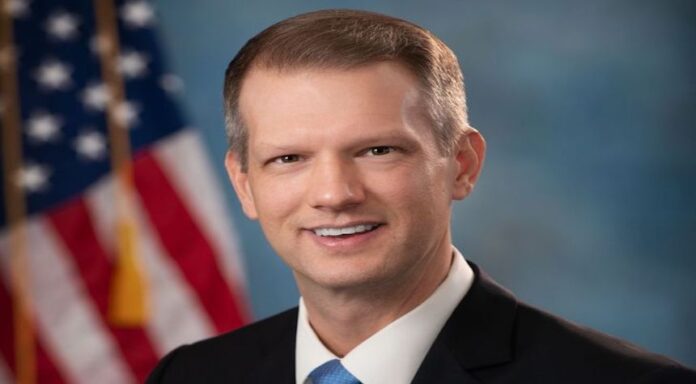West Virginia has shown remarkable leadership in fighting to limit the ability of the administrative state to implement policies based upon environmental, governance, and governance criteria. This practice is commonly known as ESG. In West Virginia v EPA, the Supreme Court ruled that federal agencies cannot enact broad regulations without explicit congressional authorization. After the decision was made, Patrick Morrisey, West Virginia Attorney General, took swift action against the Biden administration’s efforts to push their environmental agenda through the Securities and Exchange Commission (SEC).
While the AG is fighting ESGs before the courts, Riley Moore, the State Treasurer, has been working to make sure taxpayer dollars don’t support financial institutions that harm the fossil fuel sector. Moore stated that as Treasurer, it is my duty to protect the state’s Treasury and its citizens when selecting financial services for West Virginia. Moore stated that any institution that has policies to weaken our energy industries, tax base, and the job market is in conflict with taxpayer dollars.
Moore suggested earlier this year that legislators pass Senate Bill 262, which allows the Treasurer to publish a Restricted Financial Institution List. Moore was authorized by the state legislature to publish the list and remove any firm from state banking contracts.
Moore identified six potential financial institutions that could be involved in the boycott of energy companies and sent them a written notice. These institutions were given 30 days to respond to Moore’s initial notice. The responses were received by all six institutions, and the Treasurer reviewed them along with each institution’s statements of public policy.
The Treasurer’s website contains the current list of financial institutions that are no longer eligible for banking contracts. Moore determined that BlackRock Inc. and Goldman Sachs Group Inc. as well as JPMorgan Chase & Co. and Morgan Stanley are involved in boycotts against fossil fuel companies. U.S. Bancorp, one of six financial institutions originally served with notice, was not included on the List. This was because U.S. Bancorp had demonstrated to the Treasurer that its Environmental and Social Risk Policy prohibited financing coal mining, power generation, and pipeline construction.
Moore stated that each financial institution on the Restricted Financial Institution List has today published written environmental and social policies that categorically limit commercial relations with energy companies involved in certain coal mining or extraction activities. This is rather than taking into account the financial or risk profile of each company. These policies, which are based on subjective social and environmental policies, explicitly restrict commercial engagement with the entire energy sector.
West Virginia collects hundreds of million dollars annually in coal and other fossil fuel severance taxes. This is the third largest revenue source for the state’s General Revenue Budget. The state collected 13% of $5.89 billion in General Revenue funds during the last fiscal year. This does not include the income or other taxes that are collected from the economic activity and employment these fossil fuel industries create.
The West Virginia University College of Business and Economics published a report that found that coal mining and coal-fired energy generated $13.9 billion of total economic activity and supported almost 33,000 jobs in West Virginia in 2019. Moore stated that while the ‘Environmental, Social and Governance,’ or ‘ESG, movement may be popular in California and New York, financial institutions must understand how their practices are harming West Virginians. I cannot allow financial institutions to profit from West Virginia’s most critical industries by ignoring their policies.
West Virginia is the most advanced state in putting on notice companies who seek to punish fossil fuel industries. Moore wrote a May 2021 letter to John Kerry, Climate Envoy. It informed him that the states would be putting financial institutions on alert. The principles Moore outlined in the letter were signed by fifteen state comptrollers and treasurers.
One of the signatories, the Kentucky State Treasurer Allison Ball, asked for an opinion from Attorney General Daniel Cameron on whether “stakeholder capitalism”, Environmental, Social, and Governance investment practices, in relation to the investment of public pension fund funds, are compatible with Kentucky law regarding fiduciary duties. Ball says that the state law requires state pension board members to manage state pension funds in a manner that is focused on profit, solvency, improving the state’s economic development, and health.
Cameron also agreed that ESG criteria were inconsistent with state law. He stated that Kentucky’s pensions should not be subjected to “ESG” investment practices that allow for political decision-making to override sound financial decisions. The AG’s opinion will guide the investment decisions of the state board. It also opens the door to lawsuits against investment companies that use ESG criteria.
Texas passed a law in September 2021 that allowed the state of Texas to banish financial institutions that use ESG criteria. In March 2022, the state comptroller started sending letters to financial institutions asking about their climate policies. Texas’s state retirement funds and investment funds are prohibited from doing business with fossil fuel-obsessed companies. These funds are valued at approximately $330 billion.
Tucker Carlson’s Wednesday show featured Ron DeSantis, Florida Governor. He encouraged a Republican coalition against ESGs. One of the more than a dozen states that heavily rely on fossil fuels has emerged. The rise of DeSantis will undoubtedly help the work being done so far, but West Virginia is the one creating the roadmap. If a Republican group of governors emerges it will be well to continue the work Morrisey or Moore have begun.
WATCH Treasurer Moore describe how West Virginia leads states defunding BlackRock & Woke Banks:
The post West Virginia May Save the Republic If Other Republican State Leaders Get on Board appeared first on Conservative Research Group.




